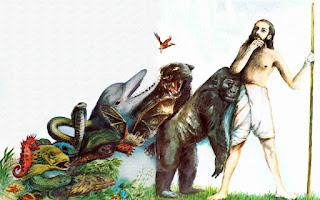Like so many others, I grew up with Darwin’s theory, and had always believed it was true. I had heard doubts over the years from well-informed, sometimes brilliant people, but I had my hands full cultivating my garden, and it was easier to let biology take care of itself. But in recent years, reading and discussion have shut that road down for good.
This is sad. It is no victory of any sort for religion. It is a defeat for human ingenuity. It means one less beautiful idea in our world, and one more hugely difficult and important problem back on mankind’s to-do list. But we each need to make our peace with the facts, and not try to make life on earth simpler than it really is.
Charles Darwin explained monumental change by making one basic assumption—all life-forms descend from a common ancestor—and adding two simple processes anyone can understand: random, heritable variation and natural selection. Out of these simple ingredients, conceived to be operating blindly over hundreds of millions of years, he conjured up change that seems like the deliberate unfolding of a grand plan, designed and carried out with superhuman genius. Could nature really have pulled out of its hat the invention of life, of increasingly sophisticated life-forms and, ultimately, the unique-in-the-cosmos (so far as we know) human mind—given no strategy but trial and error? The mindless accumulation of small changes? It is an astounding idea. Yet Darwin’s brilliant and lovely theory explains how it could have happened.
Its beauty is important. Beauty is often a telltale sign of truth.
Beauty is our guide to the intellectual universe—walking beside us
through the uncharted wilderness, pointing us in the right direction,
keeping us on track—most of the time....<<<Read More>>>...
